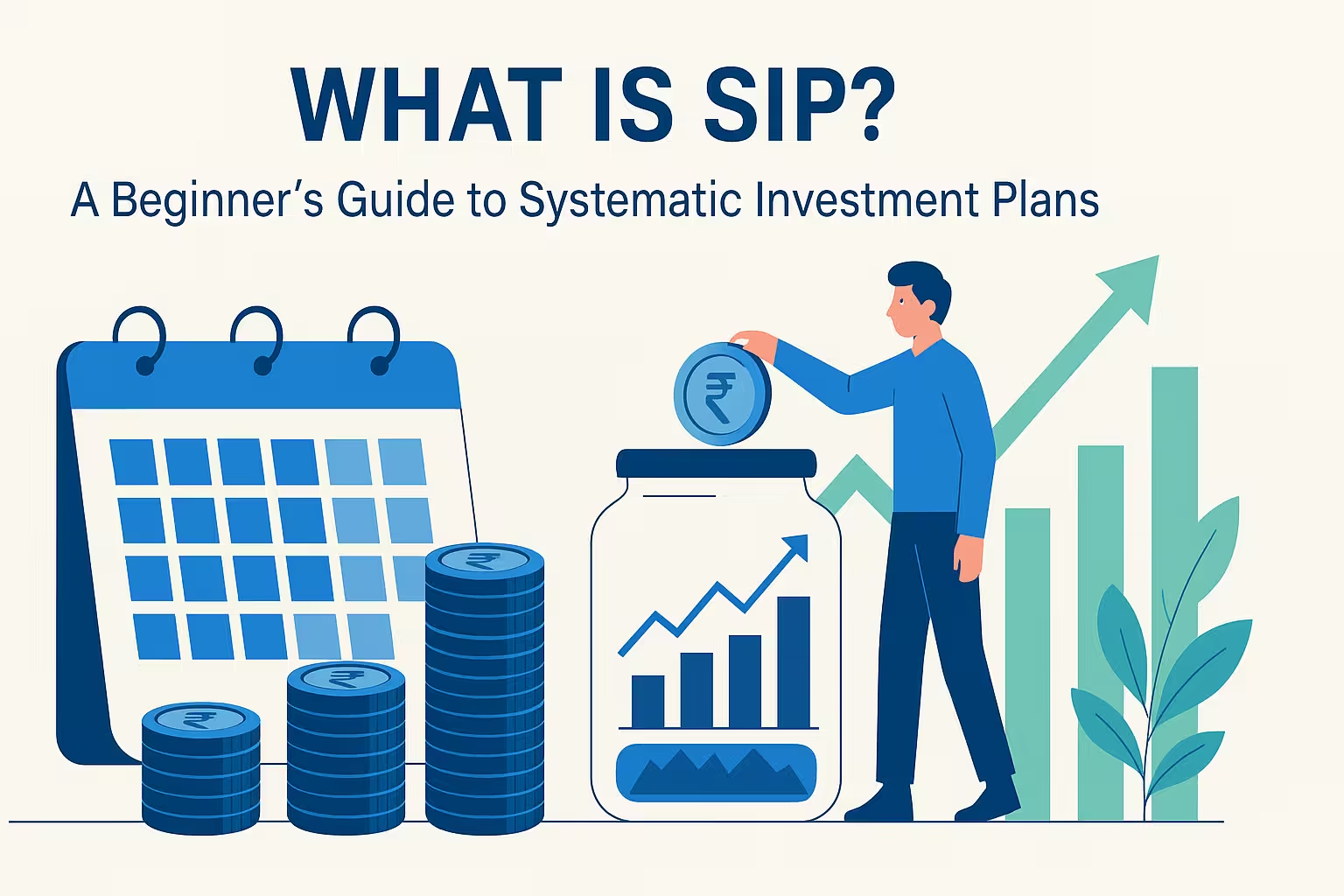Physical Address
304 North Cardinal St.
Dorchester Center, MA 02124
Physical Address
304 North Cardinal St.
Dorchester Center, MA 02124

Systematic Investment Plans (SIPs) have become one of the most popular ways for individuals to invest in mutual funds. Whether you’re a working professional, a small business owner, or a student stepping into the world of finance, understanding SIP can empower you to grow your wealth over time with discipline and minimal risk. This article aims to explain what SIP is, how it works, its benefits, types, and important things to keep in mind before investing.
A Systematic Investment Plan is a method of investing a fixed amount of money regularly in a mutual fund scheme, typically monthly or quarterly. Rather than investing a lump sum, SIP allows you to spread your investments over time, taking advantage of rupee cost averaging and the power of compounding.
Read Also: Government Employees May Get Over 30% Salary Hike Under 8th Pay Commission – Report
When you start an SIP, the chosen amount is automatically deducted from your bank account and invested into your selected mutual fund scheme. You are allotted units based on the fund’s Net Asset Value (NAV) on the date of investment. Over time, as the NAV fluctuates, the cost per unit averages out.
This concept means you buy more units when prices are low and fewer units when prices are high. Over time, your average cost per unit may reduce, helping you manage market volatility better than lump-sum investing.
Reinvested earnings generate their own earnings. The longer you stay invested, the more your wealth multiplies due to compounding. SIPs are highly effective when started early and continued consistently over the long term.
SIP promotes the habit of regular saving and investing. It brings financial discipline and helps avoid impulsive investment decisions.
You can start SIPs with as little as Rs. 500 per month. This makes it accessible to a wide range of investors, including students and first-time earners.
Since SIP spreads your investments over time, you don’t need to worry about timing the market, which is often difficult even for experts.
SIPs are flexible. You can increase, decrease, pause, or even stop your SIP as per your financial goals and convenience.
Whether it’s buying a house, funding education, or planning for retirement, SIPs can be aligned with your specific financial goals.
The most common type where a fixed amount is invested at regular intervals.
Allows you to increase the SIP amount periodically, usually annually. This helps you invest more as your income grows.
Gives you the option to change the investment amount based on your financial situation or market conditions.
Does not have a fixed end date. It continues until the investor manually stops it.
A SIP that is activated based on pre-defined triggers such as index level, NAV, or a specific date.
Understand what you are investing for: retirement, children’s education, buying a house, etc.
Pick a scheme based on your risk appetite and investment horizon. Equity funds are good for long-term goals; debt funds are safer for short-term needs.
Set an amount that is comfortable and sustainable for you. Monthly SIPs are most common.
You need to be KYC-compliant. This can usually be done online with Aadhaar and PAN details.
You can start SIPs through mutual fund websites, mobile apps, brokers, or financial advisors.
Markets will always be volatile. Discontinuing SIPs during a slump can hurt long-term gains.
Expecting high returns in a short period is a mistake. SIPs work best over the long term.
Periodic review ensures your SIPs are aligned with your goals and market performance.
Goal-less investing can lead to haphazard financial planning.
SIPs are subject to capital gains tax based on the type of mutual fund:
Each SIP installment is considered a new investment for taxation, so holding period is calculated separately for each.
| Criteria | SIP | Lump Sum |
|---|---|---|
| Investment Style | Regular, small amounts | One-time large amount |
| Market Timing Risk | Low | High |
| Suitable For | Salaried individuals | Those with surplus funds |
| Volatility Management | Better due to rupee cost averaging | Riskier in volatile markets |
This are an excellent tool for long-term wealth creation, especially for individuals who prefer a structured and disciplined approach to investing. They offer affordability, flexibility, and the potential to achieve financial goals with relatively lower risk. While they don’t eliminate risk entirely, SIPs help investors ride market ups and downs more effectively than lump sum investments.
If you’re new to mutual funds or investing in general, SIP can be your stepping stone to a financially secure future. Start small, stay consistent, and let the power of compounding work for you over time.
Disclaimer: Mutual fund investments are subject to market risks. Please read all scheme-related documents carefully before investing.
Read Also: Shravan Maas 2025: Key Dates, Significance, and Fasting Rituals Explained